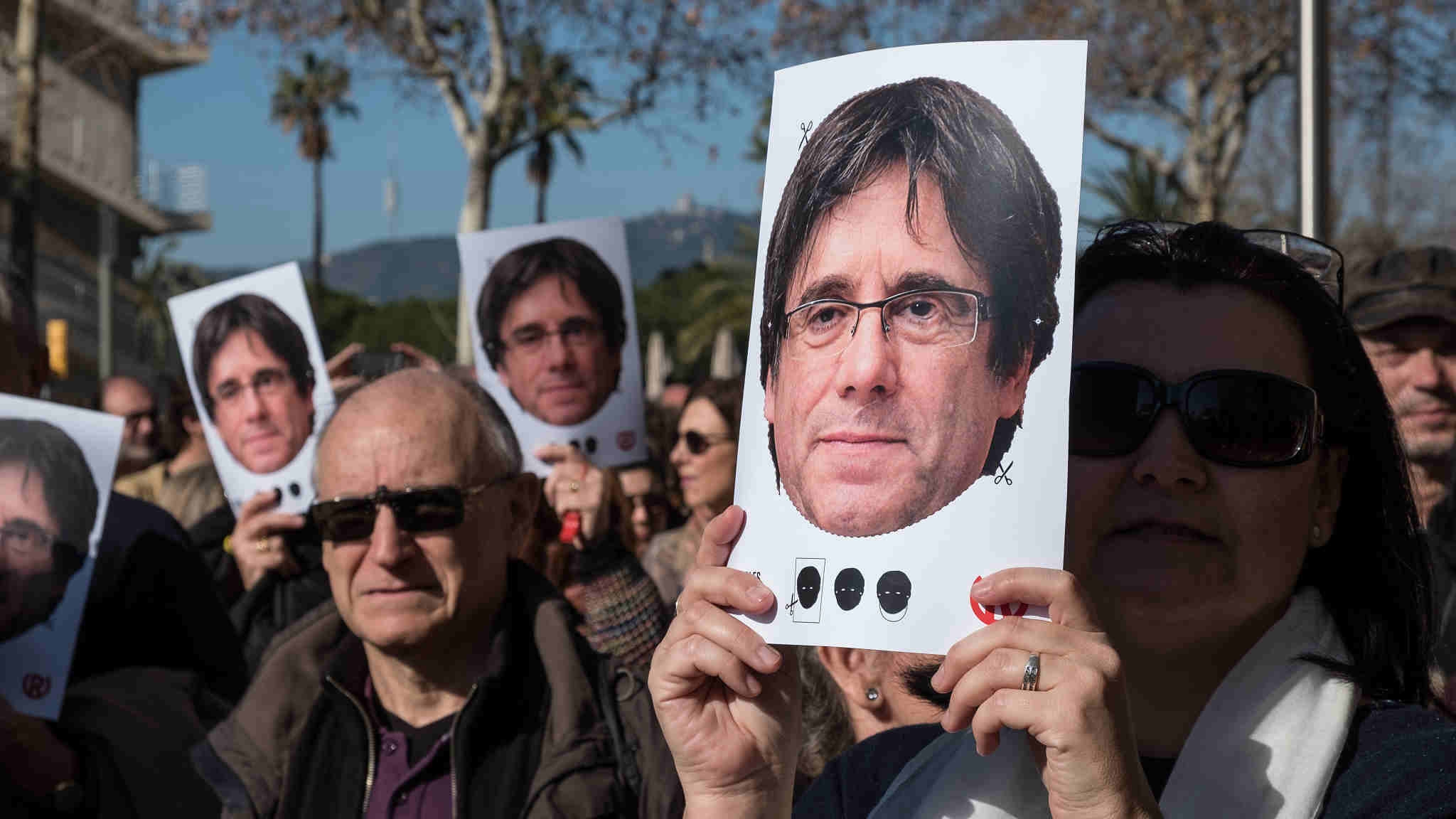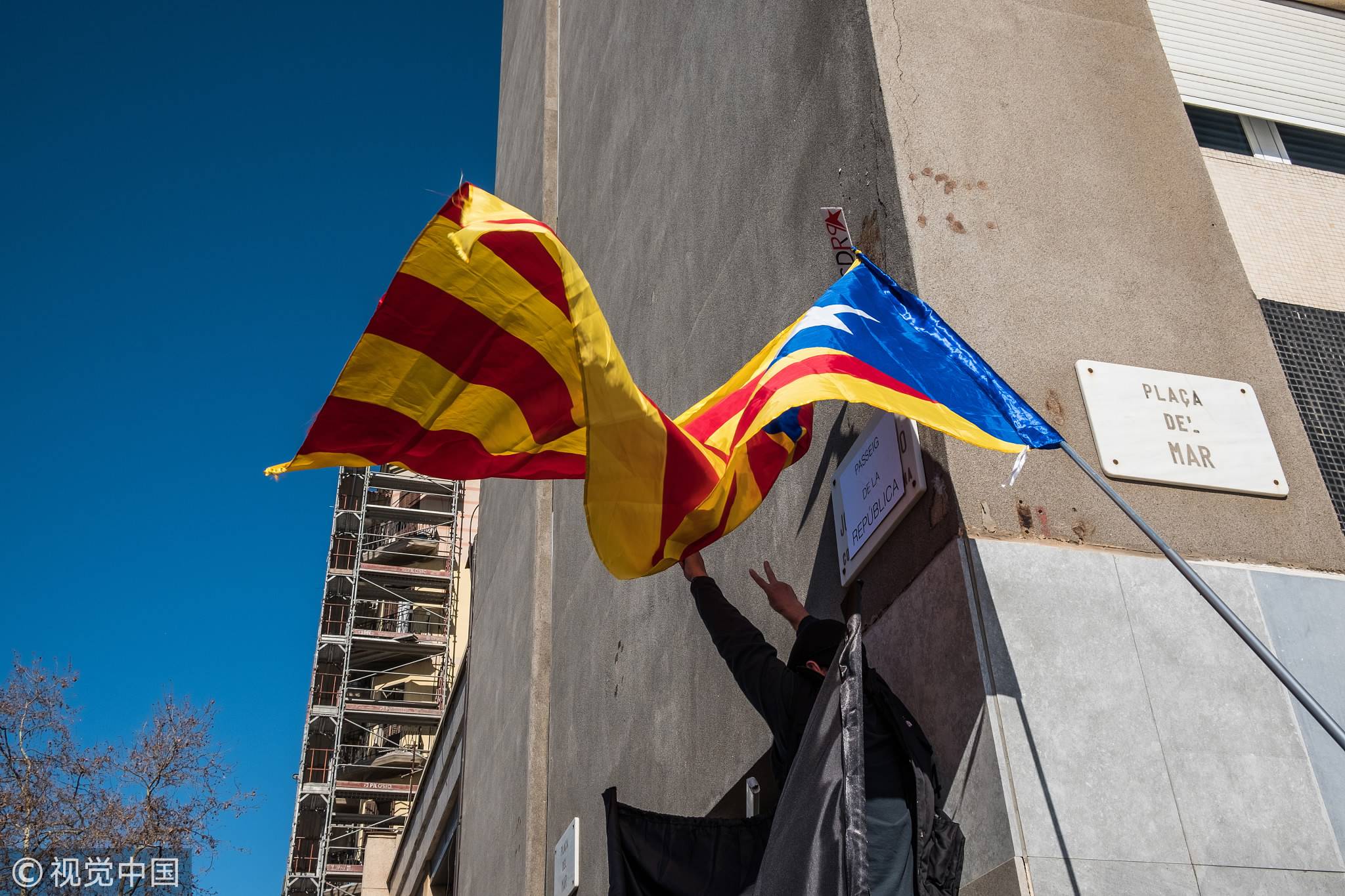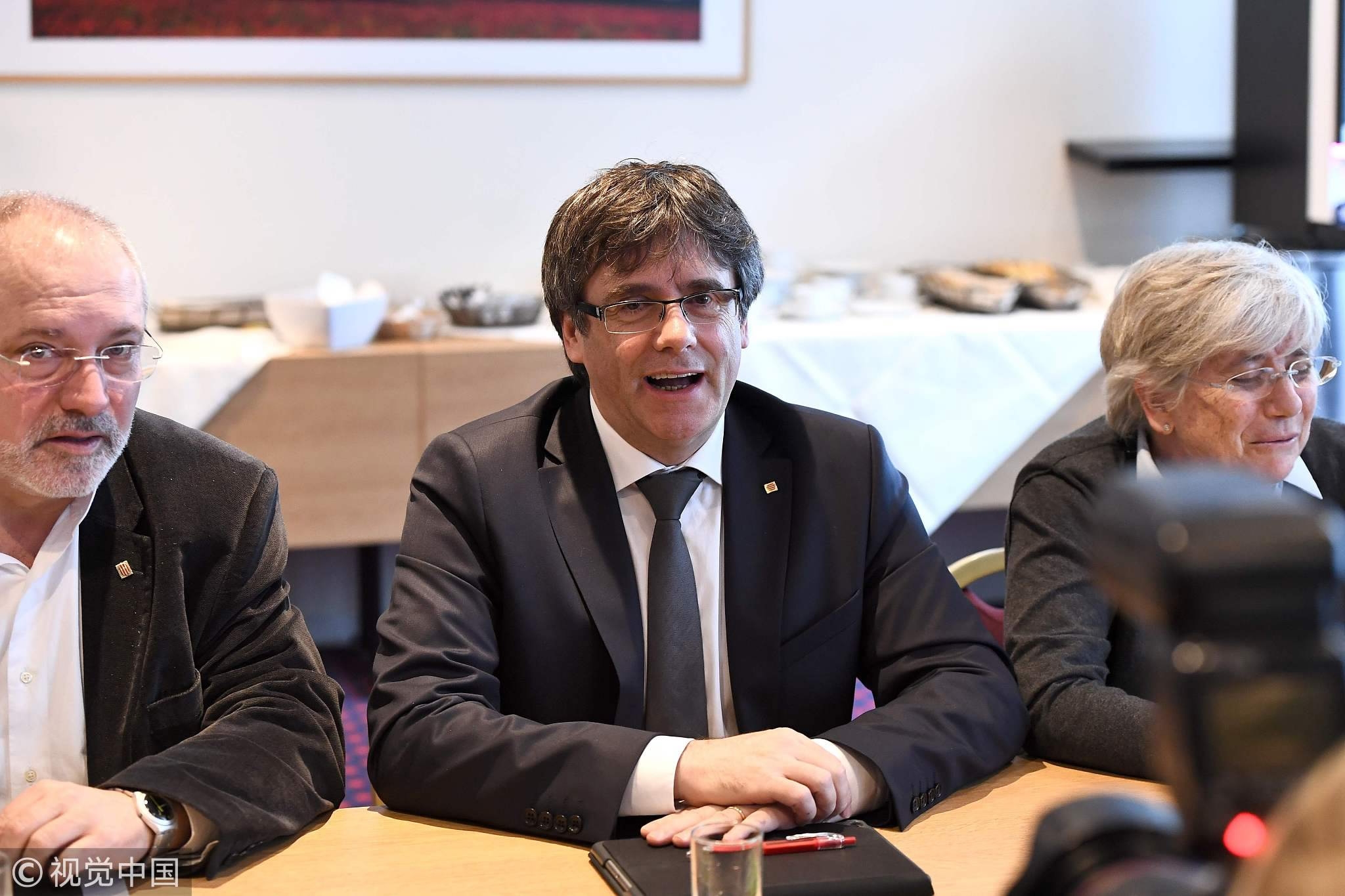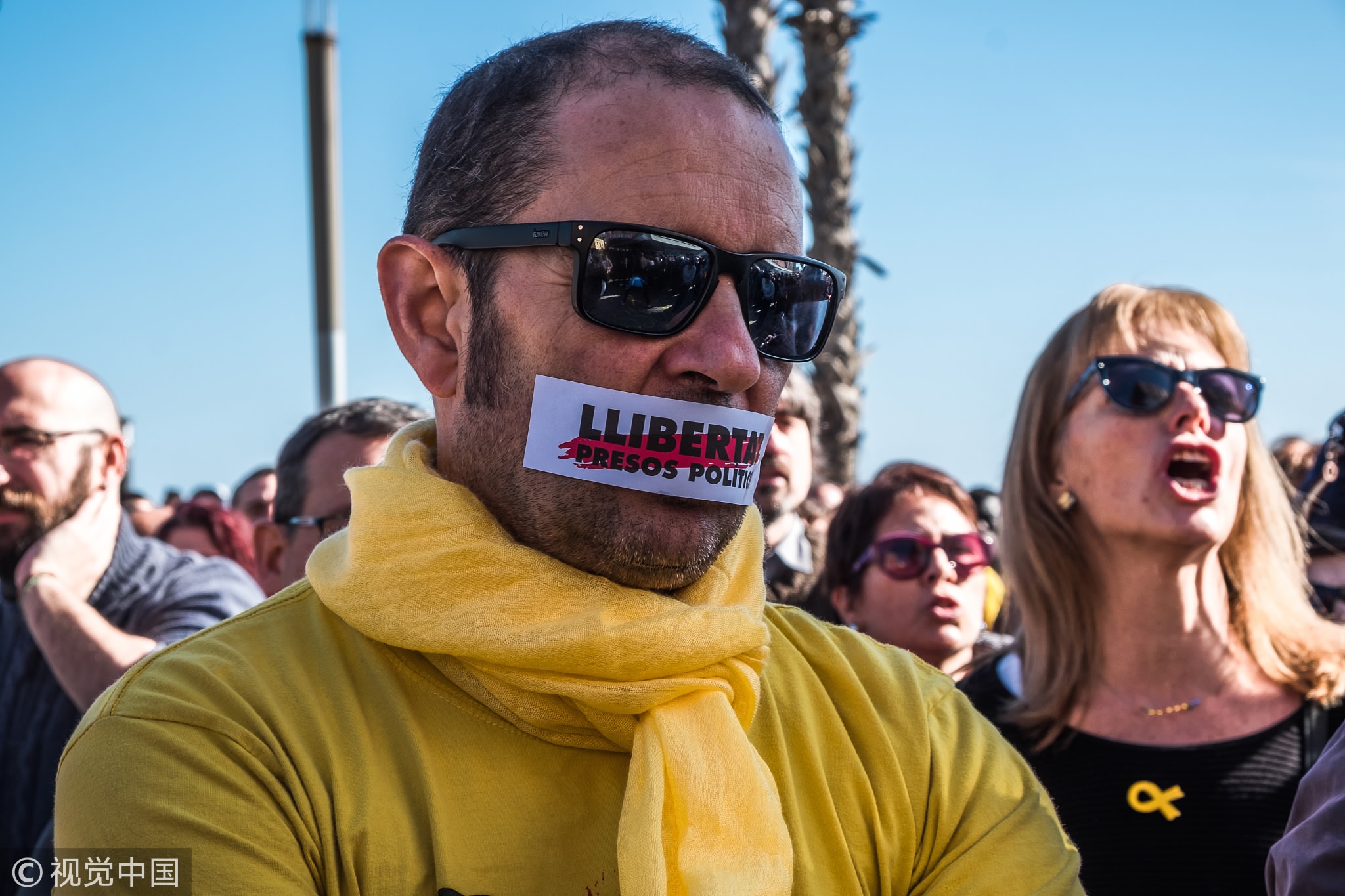
Opinions
16:09, 06-Feb-2018
Opinion: No way in sight to break Catalan impasse
Guest commentary by Andrew Dowling

The Catalan crisis that attained global attention between October and December 2017 continues. The elections held on December 22 produced a new pro-independence parliamentary majority with those parties determined to re-elect Carles Puigdemont as President of the regional government of Catalonia. Puigdemont and his government had been removed from office in late October after the Catalan parliament passed a resolution proclaiming the independence of Catalonia.
The direct rule from Madrid was then imposed as were the December elections. While the pro-independence forces are seeking to re-appoint what they term the "legitimate government", equally determined to prevent this is the conservative government of Spain, led by Mariano Rajoy. A clearer picture of the outcome will become visible in the next few days. With the situation at a general impasse, with no evidence of compromises, new elections being held in Catalonia have given rise to the possibilities.

A pro-independence flag appears in the wind while replaced the name of the street Juan de Borbón by Paseo de la Republica in Barcelona, Catalonia, Spain on January 28, 2018. /VCG Photo
A pro-independence flag appears in the wind while replaced the name of the street Juan de Borbón by Paseo de la Republica in Barcelona, Catalonia, Spain on January 28, 2018. /VCG Photo
Part of the explanation for how we have got to this situation is the fact that the desire of many Catalans to leave Spain is met with widespread incomprehension. The willingness of British and Canadian governments to hold referendums to help solve their secessionist challenges issues can be partly explained by the fact that neither Scotland nor Quebec is rich regions. Catalonia comprises almost one-fifth of the Spanish economy and has long been one of its wealthiest regions. Here the economic importance of Catalonia contributes towards the absolute inflexibility in the Spanish position.
Spanish nationhood is founded on a clear conception of territorial unity, which is given legal support in the Constitution of 1978. Unlike Canada or the United Kingdom, the willingness to negotiate around separation or even to permit a referendum on secession is absent. Britain and Canada are however unusual states in allowing for the possibility of secession. Very few countries in the world are as tolerant.

Former Catalan leader Carles Puigdemont (C), flanked by Catalonia's former Councillor of Education of the Generalitat Clara Ponsati (R), poses for a photograph as he meets with his parliamentary group on February 5, 2018, in Brussels. /VCG Photo
Former Catalan leader Carles Puigdemont (C), flanked by Catalonia's former Councillor of Education of the Generalitat Clara Ponsati (R), poses for a photograph as he meets with his parliamentary group on February 5, 2018, in Brussels. /VCG Photo
A majority of the countries does not recognize any form of secession. In 1975, the Helsinki Accords spoke of the inviolability of frontiers, non-interference in the territorial integrity of states, and that changes to borders could only take place peacefully, aligned with international law, by agreement of all parties. Since the World War II, there is not one instance of frontier change in Western Europe.
Movements for secession internationally have achieved sovereignty only where they have obtained the support of great powers. What is most striking about the Catalan independence movement is that it lacks any external patron. There is no international lobby, no diaspora community that is prepared to promote it or interested in Catalan independence. There is no reason as to why any current or great emergent power would have any reason at all to encourage a possible break up of Spain.
This has been particularly evident as not a single country has recognized the Catalan declaration of independence. In international law secession is not a right, it is a matter of the recognition of secession. As the Canadian Supreme Court asserted in 1997, "International law contains neither a right of unilateral secession nor the explicit denial of such a right."

A pro-independence demonstrator with a sticker on the mouth calls for the freedom of political prisoners on October 1 2017, in Barcelona, Catalonia, Spain on January 28, 2018. /VCG Photo
A pro-independence demonstrator with a sticker on the mouth calls for the freedom of political prisoners on October 1 2017, in Barcelona, Catalonia, Spain on January 28, 2018. /VCG Photo
Whether Puigdemont can regain power as Catalan President, remains to be seen. The Spanish government and legal authorities are determined to prevent it. Whatever happens, it remains the case that the pro-independence parliamentary majority will be required to explain how they can achieve secession in an unfavorable international environment.
Since the movement for Catalan independence emerged in a mass form in 2012, the government in Madrid has however shown itself to be unwilling to compromise and make concessions to reduce the political tension. Catalan independence is not going to fade away, and whether it is sooner or later, a political compromise is the only real solution.
It will require Madrid to recognize that close to half of the Catalan population has legitimate social, cultural, economic and political grievances. Solely focusing on legal issues, which the Madrid government does, cannot provide a political solution. The Spanish Constitutional order built in the late 1970s is broken. The Catalan question is a political problem and can only be addressed by Madrid recognizing that the issue is political, not a question of the law.
(The author is a professor at Cardiff University, also the author of ‘The Rise of Catalan Independence: Spain’s Territorial Crisis’, published by Routledge, 2017. The article reflects the author’s opinion, and not necessarily the views of CGTN.)

SITEMAP
Copyright © 2018 CGTN. Beijing ICP prepared NO.16065310-3
Copyright © 2018 CGTN. Beijing ICP prepared NO.16065310-3